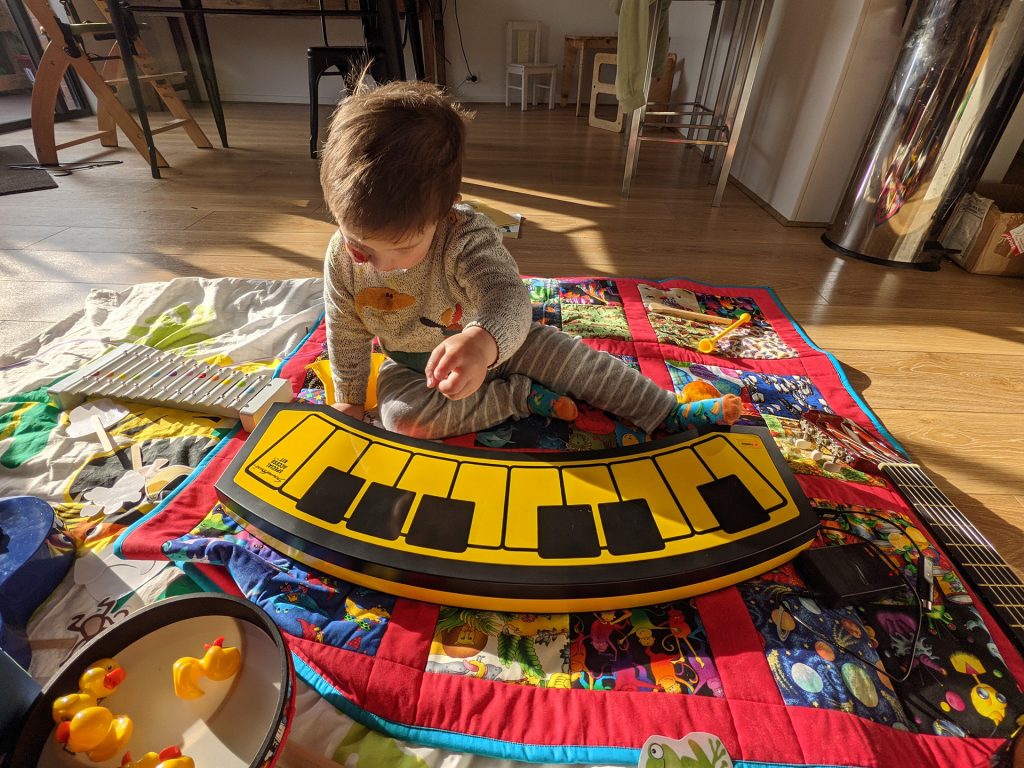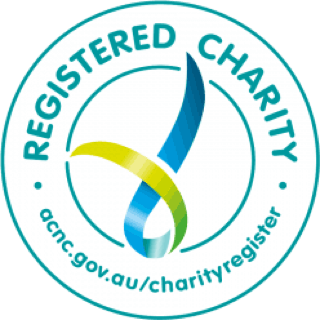Music Making with the Special Access Kit - Banana Keyboards and iPad Technology
Soundhouse Music Alliance has pursued a significant long-term program - the Special Access Kit Project using the Banana Keyboard. This was first invented in 1992 to assist those with disabilities to be able to access meaningful music making.
The cornerstone was the design of the Banana Keyboard as shown below.
The Design
The curved design went through several development stages but was designed to be able to sit across a wheelchair. The large scale of the keys meant that those without fine motor control are able to produce coordinated musical sounds, and other sounds chosen to suit the curriculum activity being undertaken.
The keyboard shown in the picture also allows switches to be connected to further enhance accessibility. For example, a student without hand movement could have a switch fitted to the headrest of a wheelchair, and thus participate in a music group by triggering the sound of a bass drum, or the bark of a dog at the appropriate time in a sound story.
Other partnerships
These have been established, between Soundhouse Music Alliance and cultural organisations, including Arts Centre Melbourne, Powerhouse Museum in Sydney, community centres and schools in several states across Australia, New Zealand and beyond. Many of these were established with close support of the music industry and continue to operate within their organisation structures.
Recent technological advances
More recent technological advances have seen a significant increase in its capability and ease of use. These include:
- The ability to use an iPad to control the sounds using a program called Thumb Jam
- The addition of Bluetooth wireless connectivity with the iPad, making it much easier to use, and less susceptible to cable damage
- The possibility of installing rechargeable battery packs to make its operation completely wireless.
Fifteen locations using the Banana Keyboard have been identified to receive these upgraded Special Access Kits, and training has been delivered to support their use. This has been made possible through the generous support of Yamaha Australia, supplying the Bluetooth wireless midi adapters, and from SMA funds supplying the battery packs.
There has been considerable interest shown by music therapists in other locations to expand the rollout of Special Access Kits, together with the wireless and battery upgrades. We are currently identifying resources for a second-round rollout and will be seeking industry and donor support to enable this to take place. It is anticipated that another 12 facilities could be supported for a total cost of approximately $2500.



